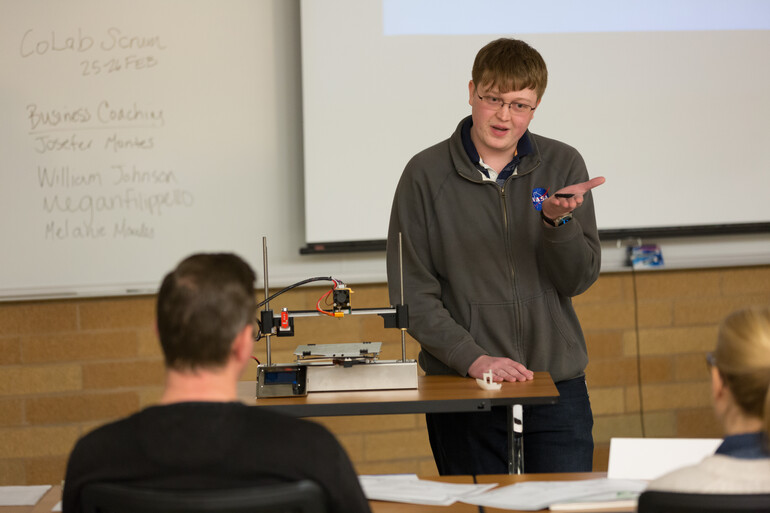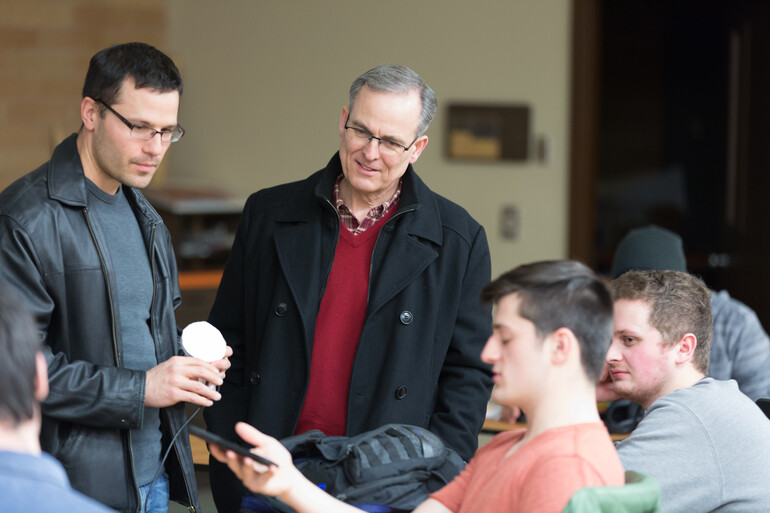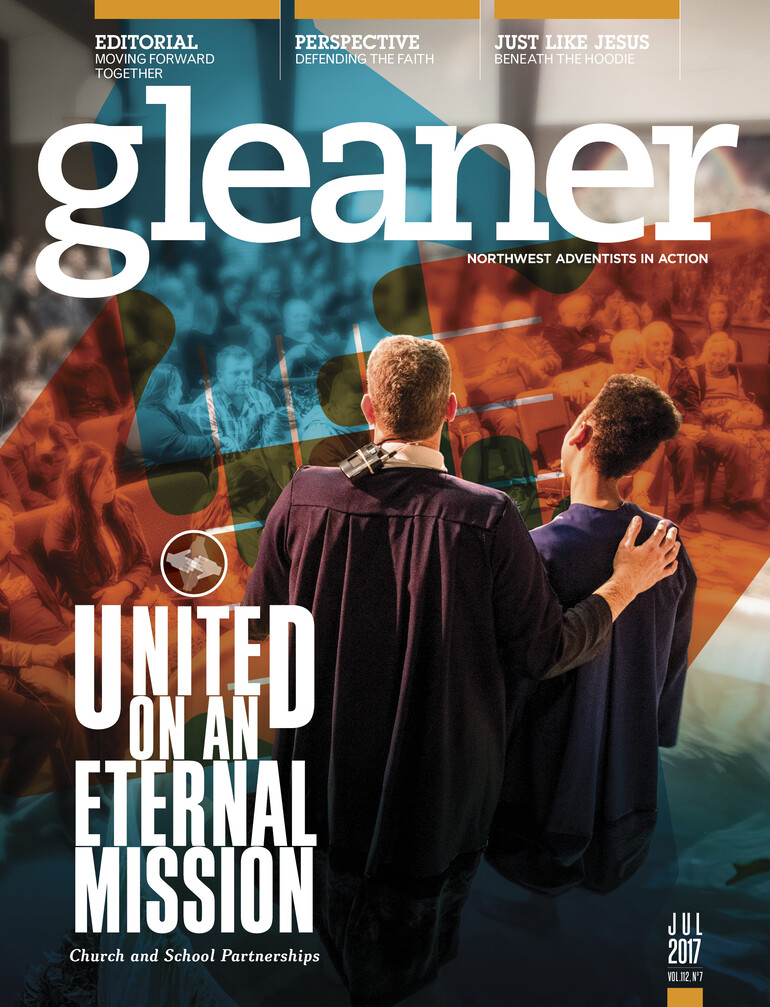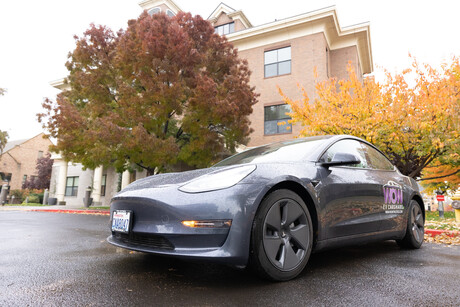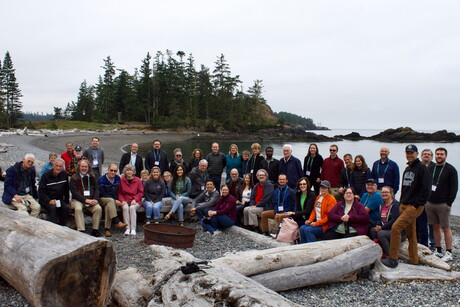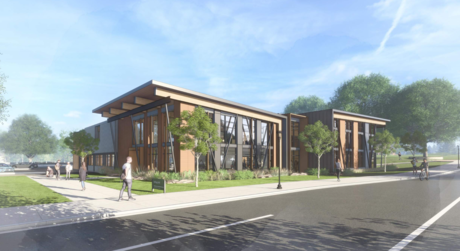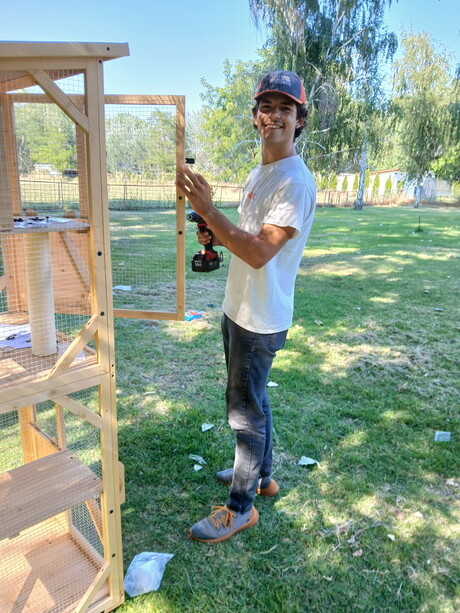During the first Walla Walla University (WWU) collaborative innovation laboratory in February, WWU student teams in College Place, Wash., presented new, marketable, patentable product prototypes and ideas to a panel of judges comprised of experts from a variety of industries. During the two-day event, the judges provided feedback to the students who then had 24 hours to incorporate that feedback into their project proposals before competing against other teams in a second round of presentations.
The CoLab Scrum — as it came to be known — was a collaborative effort of the technology department, the School of Engineering, the School of Business and the computer science department. Students majoring in these and a variety of other areas of study competed in the event.
The panel of four judges was comprised of community members and WWU faculty with experience in communications, journalism, fine arts, physics, engineering and business and those who have worked in a variety of settings, including with startups in Silicon Valley and for Fortune 500 companies.
“It was exciting to be at the beginning of multiple business ventures,” says Brian Hartman, assistant professor of education and CoLab Scrum judge. “The energy was high, and the expectation was that at least one of these ideas would eventually be made into a real business.”
Four of the five ideas presented on the first night of the event made it through to the second round. These ideas included a child-friendly stethoscope that encourages more interaction between children and health care providers; a cost-effective, high-quality 3-D printer; a hot glue gun with a more efficient heating component; and a nonprofit organization that provides tea-leaf pickers with better backpack devices for collecting leaves.
Austin Nordman, senior mechanical engineering major, presented a completed prototype of the 3-D printer he designed for his senior engineering project. “One reason I attended the event was to get help with the business aspect of my project,” says Nordman. “I enjoyed working with my team. The event definitely helped me hone my public-speaking skills and ability to work with a team.”
Linda Felipez, professor of technology and chairwoman of the technology department, would like to see the CoLab Scrum become an annual event. “We hope to eventually attract investors and industry members,” she says. “We’d also like to develop relationships with sponsors and investors to help fund project development.”
Felipez says that the heart of this event is to instill in its participants “the creative hope of realizing a design dream, a collaborative spirit, critique for improvement of their projects and the desire for more of the same.”





